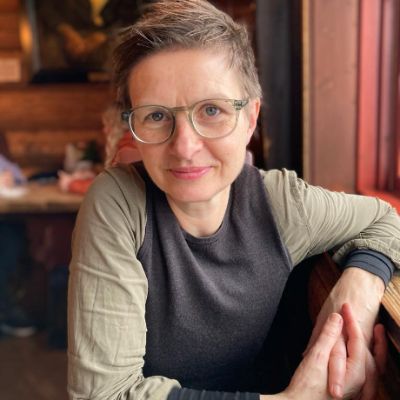Last August, Vladimir Putin gave a speech to commemorate the 80th anniversary of Shostakovich’s Leningrad Symphony. Famously performed by those of the city’s musicians still surviving eleven months in to the siege that killed thousands, plus reinforcements called back from the front lines, the epic symphony sounded a cry of anguished resilience in the jaws of totalitarian oppression and remains one of the most extraordinary acts ever of humanity in extremis. Of course, Putin didn’t put it quite like that, preferring to reinforce the old Stalinist myth that Shostakovich’s monumental work was an act of triumphant Russian defiance in the face of Nazi aggression.
No one who heard the Antwerp Symphony Orchestra’s fiercely passionate performance on 21st April could possibly claim that this music is a co-optable expression of military might or patriotism. Under the authoritative baton of resident conductor Jaap van Zweden, Shostakovich’s sardonic register was impossible to miss. With a string section so extensive that extra staging was necessary for the back desks, the opening unison theme was a direct hit to the solar plexus, and from there on in the intensity never missed a beat. The long, long marching crescendo in the Allegretto was a masterclass of control and intent, with van Zweden taking his time meticulously to construct the obsessive machine that eventually consumes the entire orchestra with its braying bombast. The woodwind solos that give such poignancy to movements the composer originally titled "War", "Reminiscence", "Home" and "Victory" enjoyed an extra clarity of expression in the Queen Elisabeth Hall’s superlative acoustic. The emotionally charged climax of the final movement saw the timpanist pounding both drums with both mallets while van Sweden lifted clear off the podium in his pains to wring every decibel from the orchestra before the audience were themselves leaping to their feet.
We are months into the Russian invasion of Ukraine and eight into the siege of Bakhmut. In a city that has itself been besieged and occupied, the Antwerp Symphony Orchestra and their conductor have, with unforgettable force, sent a message to anyone who cares to listen. While totalitarianism does not belong to the past or to any national geography, the power of music to speak truth across time knows no borders.
As if to prove it, Russian-American pianist Kirill Gerstein found time in his ferociously busy European schedule to breeze through Mozart’s springlike Piano Concerto no. 17 in G major with a delicious lightness of touch that was both playful and laser-like in its precision. As an encore to this contrasting first half, Gerstein encored with a Bach chorale, arranged by Busoni, which he announced with an insouciant smile and then proceeded to rip through at breakneck speed with astonishing dexterity.




